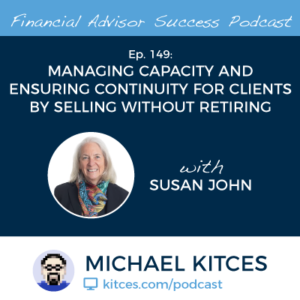Search Engine Optimization, or SEO, is the practice of trying to maximizing how often a website comes up at the top of search engine results for various keywords, increasing the number of website users to visit a particular website (i.e., website traffic), and ideally bringing visitors who are part of an appropriately targeted audience (and thus are likely to find value in the website and decide to do business). Which is a valuable marketing strategy for financial advisors to make themselves “findable” for consumers who are seeking out a financial advisor to work with (or more generally, someone who can help them with whatever financial problems they’re searching online for answers to!).
In this guest post, Lee Delahoussaye – Founder and Chief Consultant of Mindtap Marketing, a digital marketing consulting firm – provides an overview of how SEO works and discusses how financial advisors can implement simple SEO techniques to optimize their websites for better search rankings.
While there are many different approaches to developing an SEO strategy, the key ingredient that makes SEO work is understanding intent. Unlike other forms of advertising that are based on putting messages in front of people who might be interested in an advisor’s services, internet searchers oftentimes have a specific intention to find something in particular, whether that be a service, product, or getting more information and education. Which is important, because people with a direct need for financial advice search by the tens-of-thousands, with nearly 30,000 searches for terms related to “financial advisor near me” per month. And because the financial services industry is way behind the curve on this, there are still opportunities to achieve positive SEO results by leveraging the intent of those potential clients to find you as their new financial advisor, and ultimately channeling those clients to seek your advisory services.
Importantly, though, designing effective SEO strategies requires a basic understanding of how search engines actually work. And while search algorithms are highly-guarded intellectual property, it is possible to reverse engineer what limited information is known about those algorithms in order to determine a set of repeatable best practices, and then apply those best practices to improve a financial advisor’s search rankings. A good SEO design will start with identifying appropriate keywords or key phrases that the ideal visitor would likely search for and then including those keywords on the website, as well as developing website content to align with the context around those keywords.
There are four basic types of SEO on which specific strategies are based. These include on-page SEO (which encompasses the things that are done on a web page to improve rankings), off-page SEO (which is all about building external links from outside websites to yours), national/international SEO (geared to appeal to audiences based across broad geographic areas), and local SEO (which focuses on an immediate area such as a city, metropolitan area, or cluster of ZIP codes). Financial advisors can employ a mix of these SEO strategies to target visitors that are interested in their services, increasing their organic website traffic with potential clients by improving their search relevance.
Ultimately, the key point is that simple SEO techniques can be powerful tools for financial advisors to develop their own leads through “organic” internet searches. And while some advisors actually pay search engines directly to show up ahead of organic results (without actually attending to organic methods that would influence how their website would be inherently ranked and included in search results), implementing specific SEO strategies can optimize a website in order to attract a certain base of searchers more organically (and at a lower cost) that fit the advisory firm’s ideal target client and are seeking out the services of a financial advisor.

 Welcome back to the 150th episode of Financial Advisor Success Podcast!
Welcome back to the 150th episode of Financial Advisor Success Podcast! Welcome back to the 149th episode of Financial Advisor Success Podcast!
Welcome back to the 149th episode of Financial Advisor Success Podcast!
